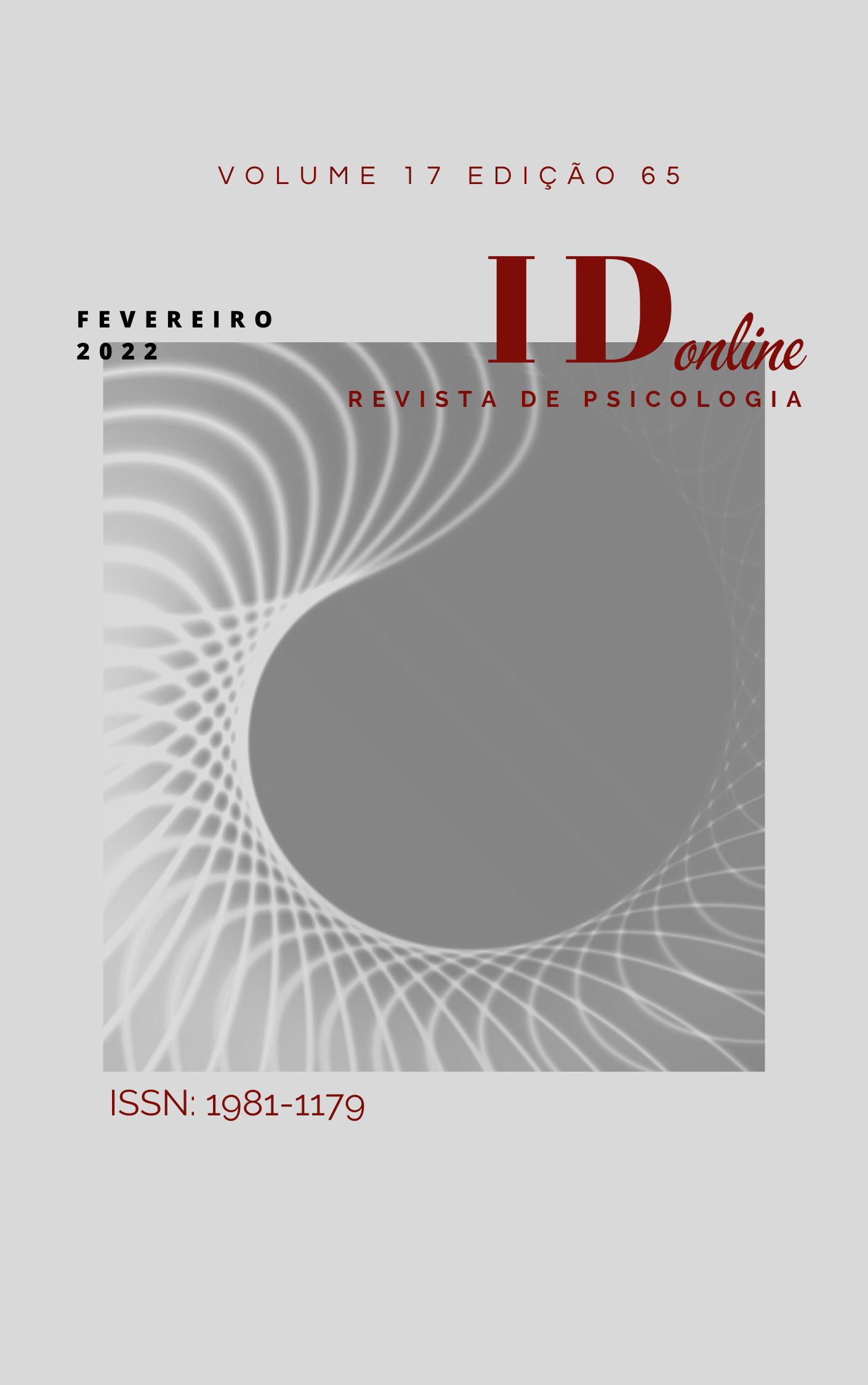Social Technologies and Sustainability in the Periphery: Analysis of the “Sustainable Culture” project in the Alto da Penha neighborhood in Crato/CE
DOI:
https://doi.org/10.14295/idonline.v17i65.3689Keywords:
solidarity economy, social management, social currency, sustainabilityAbstract
The work analyzed the Sustainable Culture Project in Bairro Alto da Penha in Crato/CE, starting from the perception that the project makes use of social technologies in the periphery, concretizing and putting into perspective the pillars of sustainable development. The research was developed from a qualitative approach, seeking to understand the Sustainable Culture Project (PCS). As for its nature, it is applied research. The method used is deductive, based on the analysis of studies on sustainable development, solidarity economy, social management and the use of social currencies to arrive at the development of activities in the PCS. As for the objective, the research is descriptive and explanatory. The procedure used was bibliographical research, subsidized by academic works and scientific articles on the subject, as well as the case study, where the practical application of knowledge was sought to solve social problems within the communities benefited by the PCS. The Alto da Penha neighborhood, according to the 2010 Census of the Brazilian Institute of Geography and Statistics - IBGE, has a population of 4,038 residents, being historically presented as a violent neighborhood (in its various aspects), with high socioeconomic vulnerability, with a lack of services and public policies. Despite the vulnerability attested by the departments and municipal and media bodies, this community has a history of communion in terms of social struggles and concern for environmental issues. The Sustainable Culture Project (PCS) is a non-profit, non-profit, voluntary project that emerged in June 2016 with the aim of contributing to the promotion of territorial development based on environmental education and sustainable management of solid waste in the Alto da Penha neighborhood in Crato/CE, through what became known as Sustainable Fairs. In the end, it was demonstrated that the project implements the pillars of sustainable development, through a solidarity economy model using social currency.
Downloads
References
ALVES, Iulo Almeida; ALVES, Tainá Almeida. O Perigo da História Única: Diálogos com Chimamanda Adichie. 2014. Universidade Estadual do Sudoeste da Bahia. Disponível em: <http://www.bocc.ubi.pt/pag/alves-alves-o-perigo-da-historia-unica.pdf>. Acesso em: 26 jun. 2022.
BEATRIZ, Marilene Zazula; OLIVEIRA, José Aparecido de; MARCHI, Lourdes; BUENO, Glicimar; CARNEIRO, Gisele. Moeda Social: Possibilidades e Limites – Reflexões a partir da Implantação do Ecobanco em uma Feira de Economia Solidária. São Leopoldo/RS, Revista Latinoamericana de Economía Social y Solidaria Otra Economía, vol. 10, n. 19, jul./dez., 2016, p. 198-207. Disponível em: <http://revistas.unisinos.br/index.php/otraeconomia/article/view/otra.2016.1019.06/5769>. Acesso em 22 jun. 2022. DOI: https://doi.org/10.4013/otra.2016.1019.06
BELLEN, Hans Michael Van. Indicadores de Sustentabilidade: Uma Análise Comparativa. 2. ed. Rio de Janeiro: Editora FGV, 2006.
BRASIL. Constituição da República Federativa do Brasil de 1988. Disponível em: <http://www.planalto.gov.br/ccivil_03/constituicao/constituicao.htm>. Acesso em: 27 jun. 2022.
CARVALHO, Mariana Costa. Autogestão, Economia Solidária e Cooperativismo: Uma Análise da Experiência Política da Associação Nacional de Trabalhadores e Empresas
de Autogestão. 2012. 119 f. Dissertação (Mestrado) - Programa de Pós-Graduação em Serviço Social, Faculdade de Serviço Social, Universidade Federal de Juiz de Fora, Juiz de Fora, 2012. Disponível em: <https://www.ufjf.br/ppgservicosocial/files/2012/05/mariana.pdf>. Acesso em: 21 jun. 2022.
FRANÇA FILHO, Genauto Carvalho de. Definindo Gestão Social. In: SILVA JÚNIOR, Jeová Torres, et. al. (Org.). Gestão Social: Práticas em Debate, Teorias em Construção. 1. ed. Juazeiro do Norte/CE: Laboratório Interdisciplinar de Estudos em Gestão Social da Universidade Federal do Ceará – Campus Cariri, 2008, p.27-37. Disponível em: <https://gestaosocial.paginas.ufsc.br/files/2011/07/Livro-1-Cole%C3%A7%C3%A3oEnapegsV1_Gest%C3%A3oSocialPraticasDebatesTeoriasConstru%C3%A7%C3%A3o.pdf>. Acesso em: 20 jun. 2022.
FUNDAÇÃO BANCO DO BRASIL. Caminhos e Perspectivas para a Tecnologia Social. Brasília: ITS BRASIL, 2018. Disponível em: <https://fbb.org.br/pt-br/?preview=1&option=com_dropfiles&format=&task=frontfile.download&catid=20&id=260&Itemid=1000000000000>. Acesso em: 15 out. 2022.
GALTER, Maria Inalva; MANCHOPE, Elenita Conegero Pastor. A Educação em Émile Durkheim. Disponível em: <http://www.histedbr.fe.unicamp.br/revista/revis/revis12/art12_12.htm>. Acesso em: 10/11/2019. Acesso em: 25 jun. 2022.
IBGE. Crato: Panorama. Disponível em: <https://cidades.ibge.gov.br/brasil/ce/crato/panorama>. Acesso em: 26 jun. 2022.
MENDES, Marina Ceccato. Desenvolvimento Sustentável. Net, 2007. Disponível em: <http://educar.sc.usp.br.biologia/textos/m_a_txt2.html>. Acesso em: 25 jun. 2022.
OLIVEIRA, Sheila Fernandes Pimenta; MARTINEZ, Renata. Desenvolvimento Regional e Local Fomentado pela Participação e Articulação de Atores Sociais. Revista FACEF Pesquisa, Desenvolvimento e Gestão, v. 16, n. 3, 2013. Disponível em: <https://oglobo.globo.com/sociedade/exploracao-de-recursos-naturais-mais-do-que-triplicou-em-50-anos-23516548>. Acesso em: 26 jun. 2022.
PRODANOV, Cleber Cristiano; FREITAS, Ernani Cesar de. Metodologia do Trabalho Científico: Métodos e Técnicas da Pesquisa e do Trabalho Acadêmico. 2. ed. Novo Hamburgo: Feevale, 2013.
SACHS, Ignacy. Desenvolvimento: Includente, Sustentável, Sustentado. Rio de Janeiro: Garamond, 2008.
SINGER, Paul. Economia Solidária versus Economia Capitalista. Revista Sociedade e Estado, Brasília/DF, v. 16, n. 1-2, dez. 2001, p. 100-112. Disponível em <http://www.scielo.br/scielo.php?script=sci_arttext&pid=S0102-69922001000100005&lng=pt&nrm=iso>. Acesso em: 21 jun. 2022. DOI: https://doi.org/10.1590/S0102-69922001000100005
TENÓRIO, Fernando Guilherme. (Re)Visitando o Conceito de Gestão Social. Revista Desenvolvimento em Questão, Ijuí/RS, ano 3, n. 5, jan./jun. 2005, p. 101-124. Disponível em: <https://www.ufjf.br/virgilio_oliveira/files/2014/10/Texto-17-Ten%c3%b3rio-2005.pdf>. Acesso em: 20 jun. 2022.
VEIGA, José Eli da. Desenvolvimento Sustentável: O Desafio do Século XXI. Rio de Janeiro: Garamond, 2010.
Downloads
Published
How to Cite
Issue
Section
License
Copyright (c) 2023 Marcus Emanuel Oliveira Lima, Piedley Macêdo Saraiva, Danyelle Queirós Lima Chagas, Maria Isabel de Sousa Bezerra

This work is licensed under a Creative Commons Attribution-NonCommercial 4.0 International License.
Os autores detêm os direitos autorais sem restrições, devendo informar a publicação inicial nesta revista, em caso de nova publicação de algum trabalho.










